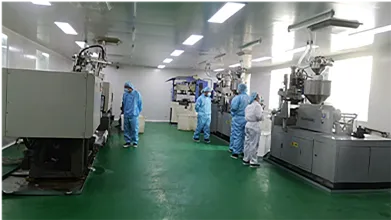dropper bottle
The Essential Role of Dropper Bottles in Modern Applications
In recent years, the utility of dropper bottles has gained significant attention across various industries, from pharmaceuticals to cosmetics. These small, often glass or plastic containers equipped with a dropper mechanism serve multiple purposes, allowing for controlled dispensing of liquid. Their design may seem simple, but dropper bottles embody a fascinating blend of functionality, precision, and versatility.
Design and Functionality
A dropper bottle usually consists of a bottle with a narrow neck and a fitted dropper top. The dropper is typically made from rubber or plastic, allowing users to easily extract or dispense liquid through suction. When the bulb is squeezed, it creates a vacuum that draws liquid into the dropper. Releasing the bulb allows the user to dispense the liquid a drop at a time, which is particularly beneficial when dealing with potent substances that require careful measurement.
This dispensing mechanism is crucial, especially in fields like healthcare where accuracy is vital. For example, certain medications are highly concentrated, and even a slight overdosing can lead to adverse effects. By using a dropper bottle, one can ensure they administer the correct dosage, minimizing the risk of errors.
Applications Across Industries
1. Pharmaceuticals Dropper bottles are extensively used in the pharmaceutical industry for the packaging and dispensing of liquid medications, especially those intended for children. Pediatric formulations often feature these bottles for easy dosing, ensuring safety and precision. Furthermore, when creating homeopathic remedies, practitioners utilize dropper bottles to dispense minute quantities of diluted solutions effectively.
dropper bottle

2. Cosmetics and Skincare The beauty industry has adopted dropper bottles for serums, oils, and other liquid products. The ability to control the number of drops is particularly advantageous when dealing with concentrated ingredients. For instance, luxury facial oils and serums are often dispensed via droppers to allow users to apply just the right amount, enhancing the overall user experience and reducing waste.
3. Essential Oils In the world of aromatherapy, dropper bottles are indispensable. Essential oils are powerful substances that require careful application; thus, dropper bottles allow users to enjoy the benefits of these oils without spilling or overusing. Many brands package their essential oils in dark glass droppers to protect the product from light degradation, ensuring longevity and maintaining potency.
4. Food and Beverage The culinary field has also embraced dropper bottles for flavorings, extracts, and specialty sauces. Chefs often utilize them to add exquisite flavors in precise amounts, enhancing their dishes without overwhelming them. This controlled dispensing is crucial in high-end cooking, where even a single drop can alter the balance of flavors.
Environmental Considerations
As awareness of environmental issues grows, the dropper bottle industry is making strides towards sustainability. Traditionally produced from plastic, many manufacturers are now shifting to eco-friendly materials, such as biodegradable plastics or recycled glass. Additionally, some companies offer refill programs, allowing consumers to reuse their dropper bottles, thereby reducing waste and promoting a more sustainable consumption model.
Conclusion
Dropper bottles may seem like simple tools, but their importance cannot be overstated. With applications spanning from healthcare to cosmetics and culinary arts, they offer a precise, controlled method of dispensing liquids that enhances safety and user experience. As industries evolve and embrace sustainability, the design and functionality of dropper bottles will likely adapt to meet modern needs while continuing to serve as an indispensable resource. Whether it’s a child’s medication, a skincare serum, or a chef’s secret ingredient, dropper bottles will remain a key player in ensuring quality and precision in liquid dispensing.
-
Aesthetic Makeup Spray Bottles | Fine Mist Empty RefillableNewsAug.19,2025
-
White Plastic Veterinary Vaccine Vials | Lab Liquid BottlesNewsAug.18,2025
-
Plastic Medicine Liquid Bottle: Secure Flip Top Drug VialsNewsAug.17,2025
-
Durable 250ml Blue Plastic Vaccine Vial for Lab & Vet UseNewsAug.16,2025
-
Sterile Virus Sample Tubes: Secure & Reliable Specimen CollectionNewsAug.15,2025
-
White 250ml Plastic Vaccine Vial for Lab & Vet MedicineNewsAug.14,2025
























